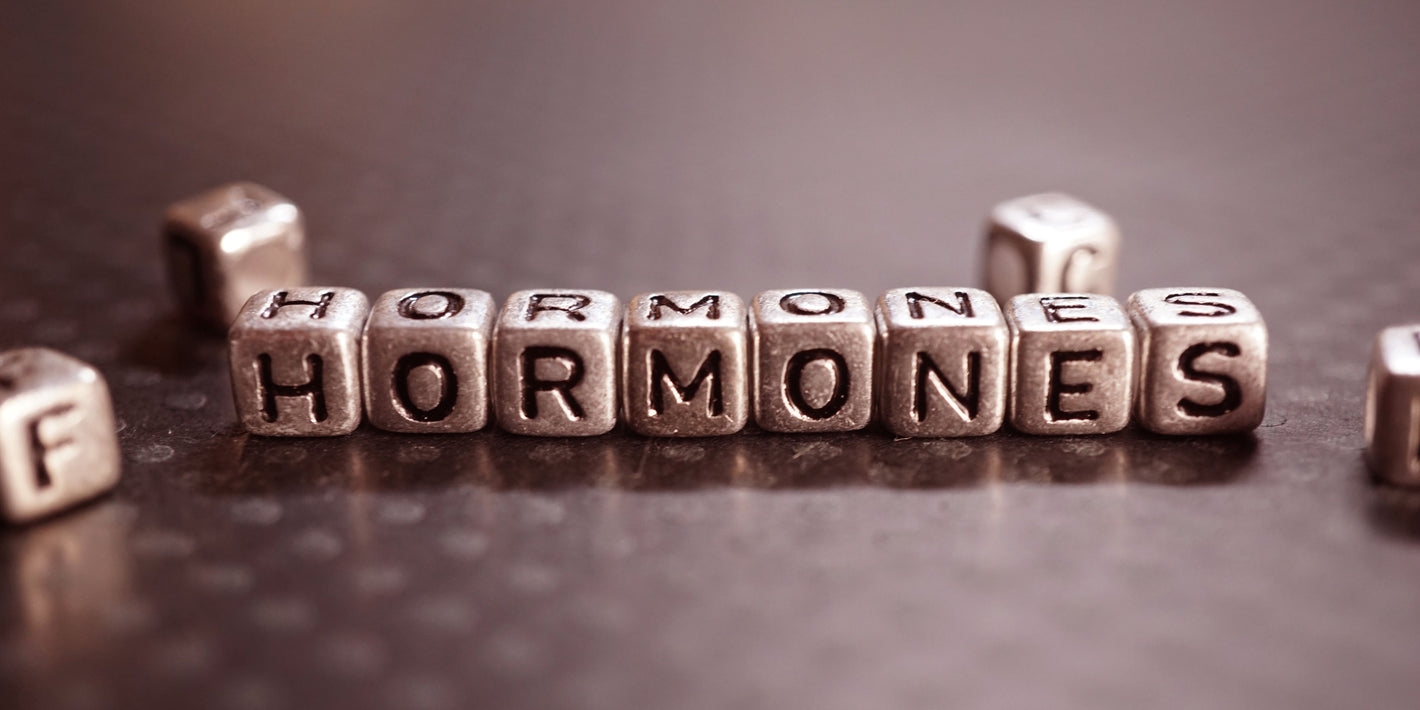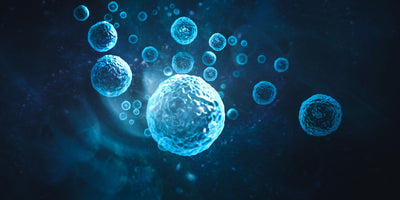
Hormonal Imbalance and the Absence of Astaxanthin
Introduction
Hormonal imbalance, a term often whispered in health circles, has profound implications for our well-being. It's a delicate dance of chemicals that, when disrupted, can lead to a cascade of health issues, ranging from mood swings to more serious chronic conditions. Often overlooked in this intricate balance is the role of diet and specific nutrients, particularly the potential impact of certain antioxidants like astaxanthin. This unique compound, known for its vibrant red-orange pigment, is not just a colorant in the natural world but a potent player in our health.
Astaxanthin, found in certain algae and seafood, has garnered attention in the health community for its strong antioxidant properties. In this article, we explore how the absence of astaxanthin might be a hidden factor in hormonal imbalances. We aim to unravel the complex relationship between hormones and this powerful antioxidant, providing insights into how its deficiency could disrupt our hormonal harmony. Whether you are directly affected by hormonal issues or are simply interested in preventive health measures, understanding the role of astaxanthin could be crucial in maintaining your hormonal health.
What is Hormonal Imbalance?
Hormonal imbalance occurs when there's a disruption in the normal levels of hormones in our body. These chemical messengers play crucial roles in regulating various bodily functions, including metabolism, reproduction, growth, and mood. When these hormones are out of balance, it can lead to a multitude of symptoms that can significantly impact an individual's quality of life. Common causes of hormonal imbalances include lifestyle factors like stress and diet, environmental toxins, genetic predisposition, and certain medical conditions.
The symptoms of hormonal imbalance are as varied as their causes. Women may experience issues like irregular menstrual cycles, weight gain, acne, and fertility problems, while men might face reduced libido, fatigue, and muscle weakness. Both genders can suffer from shared symptoms like insomnia, anxiety, and mood disturbances. The complexity and variability of these symptoms underscore the need for a nuanced approach to diagnosis and treatment, emphasizing the importance of lifestyle and dietary factors in maintaining hormonal balance.
Astaxanthin: An Overview
Astaxanthin, a member of the carotenoid family, is a naturally occurring pigment responsible for the red and pink colors found in marine life such as salmon, shrimp, and some algae. Beyond its aesthetic role, astaxanthin is recognized for its exceptional antioxidant properties, far surpassing other well-known antioxidants like vitamin E and beta-carotene. These properties make astaxanthin a subject of interest in various health-related research areas, including anti-aging, neuroprotection, and cardiovascular health.
In recent years, the focus has shifted to astaxanthin's potential role in hormonal health. Its ability to neutralize free radicals and combat oxidative stress — a known disruptor of hormonal balance — makes it a compound of interest. Moreover, astaxanthin's anti-inflammatory properties may also play a role in modulating hormone-related conditions, further underscoring its significance in this area.
Linking Astaxanthin to Hormonal Health
Astaxanthin's potential impact on hormonal health stems from its ability to interact with various biological pathways. Its antioxidant properties are particularly relevant, as oxidative stress is a known factor in hormonal disruptions. By scavenging free radicals and reducing oxidative damage, astaxanthin may help maintain the integrity of cells and tissues involved in hormone production and regulation.
Additionally, astaxanthin has been observed to modulate the activity of certain enzymes and receptors involved in hormonal processes. For instance, studies suggest that it may influence the function of estrogen receptors, potentially affecting hormonal balance in both men and women. These findings highlight the nuanced ways in which astaxanthin could contribute to hormonal health, although more research is needed to fully understand its mechanisms and effects.
The Absence of Astaxanthin and Hormonal Imbalance
The absence of astaxanthin in one's diet, particularly in societies with limited access to natural sources, might be an overlooked factor in hormonal imbalances. Given the compound's potent antioxidative and anti-inflammatory properties, its deficiency could lead to increased vulnerability to oxidative stress and inflammation, both of which are implicated in hormonal disorders. This is particularly relevant in the context of modern lifestyles, which are often characterized by high stress and exposure to environmental toxins.
Moreover, the potential effects of astaxanthin deficiency on hormonal health could be wide-ranging, impacting various systems in the body. For example, a lack of astaxanthin might contribute to imbalances in stress hormones like cortisol, which in turn can affect other hormonal systems, leading to a cascade of health issues. Additionally, given the proposed role of astaxanthin in modulating sex hormone receptors, its absence could have implications for reproductive health and related hormonal functions.
Common Sources of Astaxanthin

Astaxanthin is primarily found in certain types of seafood, with wild-caught salmon being one of the richest sources. Other marine sources include krill, algae, trout, and shrimp. The concentration of astaxanthin in these foods can vary significantly depending on factors like diet, habitat, and species. For those who do not consume seafood, astaxanthin is also available in supplement form, usually derived from the microalgae Haematococcus pluvialis.
When incorporating astaxanthin into your diet, it's important to consider the quality and source of the food or supplement. For seafood, opting for wild-caught varieties can ensure higher astaxanthin content. For supplements, choosing products from reputable manufacturers that provide information on sourcing and extraction methods can help ensure you are getting a quality product. It's also important to note that while astaxanthin is generally considered safe, its long-term effects and optimal dosage are still being studied.
Integrating Astaxanthin into Your Diet
Integrating astaxanthin into your diet can be a straightforward process, especially if you enjoy seafood. Incorporating salmon, trout, or shrimp into your meals a few times a week can significantly boost your astaxanthin intake. For vegetarians, vegans, or those who prefer not to consume seafood, algae-based supplements are a viable alternative. These supplements come in various forms, including capsules and powders, making it easy to add them to your daily routine.
It's important to approach dietary changes and supplementation with a balanced perspective. While astaxanthin can be a valuable addition to your diet, it should be part of a broader strategy for maintaining hormonal balance. This includes a diet rich in a variety of nutrients, regular physical activity, and other lifestyle factors that contribute to hormonal health. As always, it's advisable to consult with a healthcare professional before starting any new supplement, especially if you have existing health conditions or are taking other medications.
Managing Hormonal Imbalance: Beyond Astaxanthin
While astaxanthin can play a role in managing hormonal imbalances, it's important to recognize that it's just one piece of a larger puzzle. Hormonal health is influenced by a complex interplay of factors, including diet, lifestyle, genetics, and environmental exposures. To effectively manage hormonal imbalances, a holistic approach that considers all these elements is essential.
A balanced diet that includes a variety of nutrients is crucial for hormonal health. This means consuming a mix of fruits, vegetables, whole grains, lean proteins, and healthy fats. Regular physical activity is also important, as it can help regulate hormones like insulin and cortisol. Stress management techniques such as meditation, yoga, or deep breathing can also be beneficial, as chronic stress can lead to hormonal imbalances. Additionally, ensuring adequate sleep and reducing exposure to endocrine-disrupting chemicals found in some plastics and personal care products can further support hormonal balance.
In some cases, hormonal imbalances may require medical intervention. Conditions like thyroid disorders, polycystic ovary syndrome (PCOS), or adrenal gland disorders may need specific treatments. It's important to work with healthcare professionals to develop a comprehensive treatment plan that addresses both the symptoms and underlying causes of hormonal imbalances.
Summary
Hormonal Imbalance Overview:- Hormonal imbalance involves the disruption of normal hormone levels.
- Causes include stress, lifestyle, environmental toxins, and health conditions.
- Symptoms vary widely, affecting mood, metabolism, reproductive health, and more.
- Astaxanthin is a potent antioxidant found in certain algae and seafood.
- Known for its strong anti-inflammatory and antioxidative properties.
- Potential role in modulating hormonal balance due to its effects on oxidative stress and inflammation.
- Astaxanthin may positively influence hormonal health by reducing oxidative stress.
- Studies indicate potential effects on estrogen receptors and hormonal regulation.
- More research is needed to fully understand astaxanthin's impact on hormones.
- Deficiency in astaxanthin could contribute to increased risk of hormonal imbalance.
- Absence might lead to heightened vulnerability to oxidative stress and inflammation.
- Especially impactful in populations with limited access to natural sources.
- Found in seafood like salmon, krill, and shrimp, and in microalgae.
- Available in supplement form, beneficial for non-seafood eaters.
- Quality and source are important for maximizing benefits.
- Can be easily added through seafood or algae-based supplements.
- Should be part of a balanced diet and lifestyle for best results.
- Consultation with healthcare professionals recommended for supplementation.
- Managing hormonal imbalance requires a holistic approach beyond astaxanthin.
- Includes balanced diet, regular exercise, stress management, and adequate sleep.
- Other factors like genetics, environment, and medical conditions also play a role.
- Astaxanthin, while not a cure-all, is a valuable component in maintaining hormonal health.
- Emphasis on a comprehensive approach for managing hormonal imbalances.
- Importance of seeking professional advice for personalized treatment.









